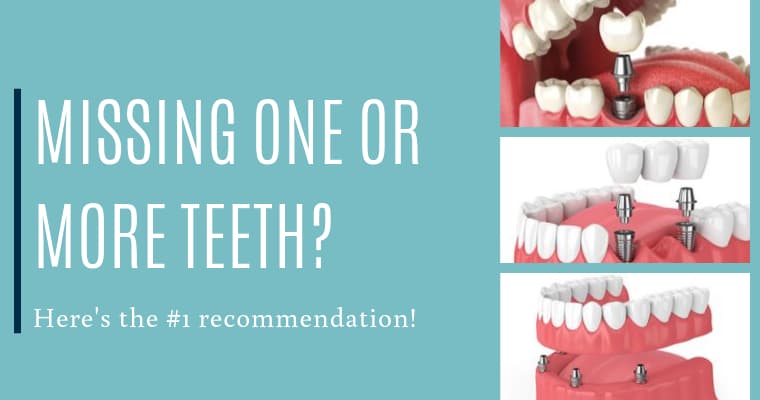Dental Sense Things To Know Before You Buy
Table of ContentsDental Sense - The FactsGetting The Dental Sense To WorkGetting The Dental Sense To WorkAll About Dental Sense
are clinical tools surgically implanted right into the jaw to bring back an individual's ability to eat or their look. They supply assistance for synthetic (phony) teeth, such as crowns, bridges, or dentures. When a tooth is lost because of injury or illness, an individual can experience problems such as rapid bone loss, defective speech, or changes to eating patterns that lead to discomfort.Dental implant systems contain a dental implant body and oral implant joint and may additionally include an abutment fixation screw. Dental implants. The dental implant body is surgically placed in the jawbone in place of the tooth's root. The dental implant joint is generally affixed to the implant body by the abutment fixation screw and extends via periodontals into the mouth to sustain the connected fabricated teeth
(https://allmyfaves.com/dentalsense1?tab=Dental%20Sense)Framework of The Dental Implant System picking dental implants, speak to your oral copyright concerning the possible benefits and risks, and whether you are a prospect for the treatment. Things to think about: Your overall health is a vital variable in establishing whether you are a great prospect for dental implants, for how long it will require to heal, and for how long the implant might remain in area.
Smoking may impact the recovery procedure and reduce the long-lasting success of the dental implant. The recovery procedure for the implant body might take a number of months or longer, throughout which time you commonly have a short-lived abutment in area of the tooth. the oral implant procedure: Thoroughly follow the oral health directions given to you by your dental copyright.
Unknown Facts About Dental Sense
Implant failing can result in the need for an additional surgical treatment to fix or replace the implant system. Recovers the ability to chew Brings back aesthetic appearance Aids keep the jawbone from shrinking due to bone loss Protects the wellness of the bordering bone and gum tissues Helps keep nearby (neighboring) teeth stable Improves lifestyle Damages to bordering natural teeth throughout implant placement Injury to the surrounding tissues throughout surgery, such as sinus perforation Injury throughout surgical treatment (as an example, crack of surrounding jawbone) Insufficient function, such as seeming like the teeth do not bite with each other typically A feeling that the tooth hangs or twisting in position arising from an abutment screw loosening up Implant body failure (looseness of the dental implant body) due to systemic infection, which might be most likely in patients with unrestrained diabetes mellitus due to regional infection in bone and gum tissues supporting the dental implant body because of postponed recovery, which might be more probable in clients who smoke Trouble cleaning the periodontals around the dental implant, resulting in poor dental hygiene Without treatment gum disease Post-surgical pins and needles as a result of nerve impingement or damages Constantly inform healthcare companies and imaging professionals that you have dental implants before any type of magnetic resonance imaging (MRI) or x-ray treatments.
FDA is not familiar with any kind of adverse occasions reported for MRI or x-ray procedures with oral implants. Dental implants systems are normally made from materials that adhere to international consensus standards of the International Organization for Standardization (ISO) or ASTM International. These requirements have information of what makes a secure product.

An oral implant my latest blog post is a structure that changes a missing out on tooth. With screw-like gadgets, the surgeon inserts a dental implant into the jawbone, and it acts as a support for a fabricated tooth, called a crown.
Fascination About Dental Sense
Some individuals are not eligible for dental implant surgery. It is for oral specialists to run on people with: intense illnessuncontrollable metabolic diseasebone or soft tissue disease or infectionIf these issues are solved, an individual can have the surgery. In, dental surgeons avoid operating individuals with: If individuals with any of the above go through dental implant surgical treatment, there is a higher danger of the implant failing.

Dental implant surgical treatment is a tailored procedure. It's not the same for everybody. The complying with offers a general introduction of what you can anticipate your dental practitioner, oral surgeon, periodontist or prosthodontist to do: Put the implant operatively. Give you time to heal. Attach the article and last crown, bridge or denture.
Next off, your doctor will carefully put the dental implant into your jaw. Lastly, your cosmetic surgeon will rearrange your gum tissues and close the laceration with stitches. If your dental implant is near the front of your mouth, your dentist will certainly make a temporary tooth for you to use till you recover. That means, you won't have a space in your smile while you recuperate.
Dental Sense Fundamentals Explained
Your supplier can tell you what to expect in your situation. During the healing stage, your jawbone needs to fuse to the oral implant. This procedure, called osseointegration, is crucial for stability and long-term success. This procedure can take anywhere from 3 to 9 months. In some situations, it might take longer.
Once your dental implant heals, your dental expert can attach the joint (small adapter post) and your final restoration (crown, bridge or denture). This normally takes regarding one hour to complete and might call for a second minor surgical treatment. You shouldn't feel any discomfort during your oral implant treatment because your service provider will certainly use medicine to numb your gum tissues.